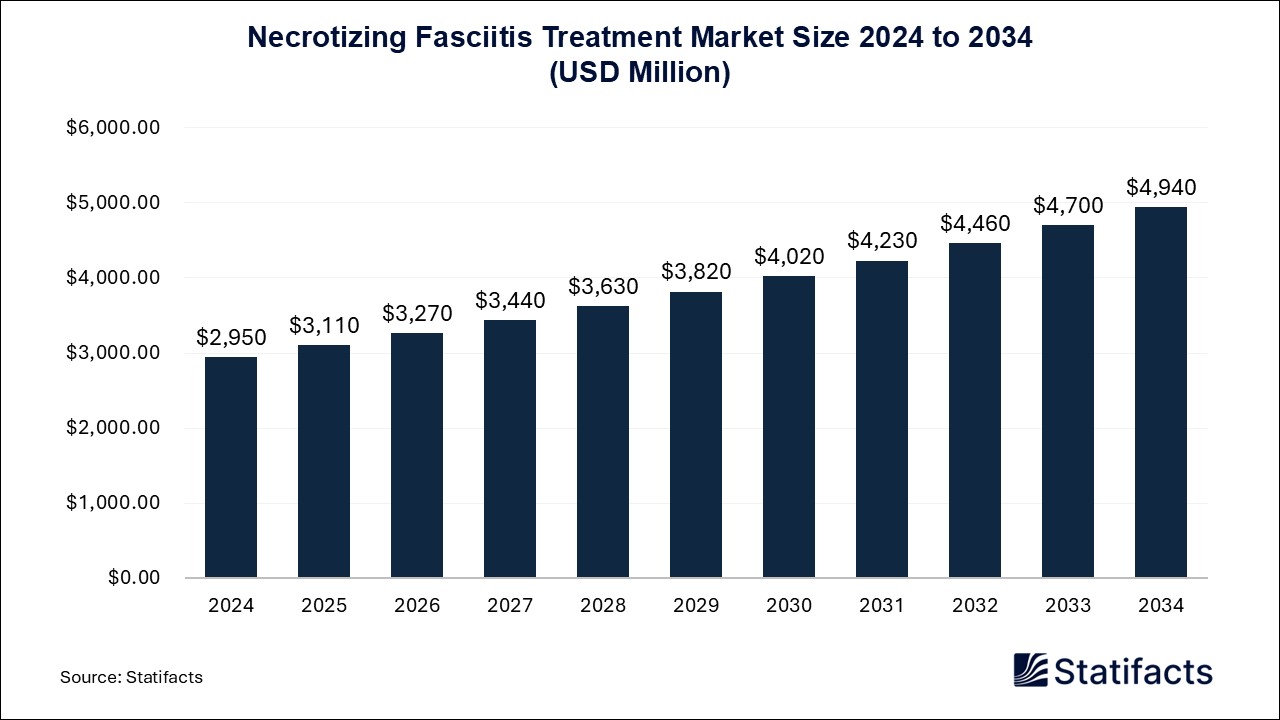
By clicking “Accept All Cookies” you agree to the storing of cookies on your device to enhance site navigation, analyze site usage, and assist in our marketing efforts.
Privacy PolicyThe U.S. eHealth market size is calculated at USD 111.98 billion in 2024 and is predicted to reach around USD 611.40 billion by 2034, expanding at a CAGR of 18.5% from 2025 to 2034.
The U.S. eHealth market encompasses the integration of digital solutions within healthcare, facilitating the delivery of medical services through electronic channels. This sector includes telemedicine, electronic health records, mobile health applications, and health information systems. It aims to enhance healthcare access, improve patient outcomes, and streamline operations which are driven by technological advancements and increasing demand for remote healthcare solutions. The U.S. eHealth market is witnessing robust expansion, which is primarily driven by technological advancements and increasing healthcare digitization.
Telemedicine stands out as the top-performing segment which is fueled by the need for remote patient monitoring and virtual consultations, especially in the wake of the global pandemic. Mobile health applications follow closely, reflecting the rising adoption of smartphones and wearable devices for health tracking and management. The growing focus on personalized medicine and patient-centric care models further accelerates the market's evolution.
The regulatory environment, which includes HIPAA regulations and GDPR compliance, plays a crucial role in shaping market dynamics, particularly concerning data privacy and security standards. As the market evolves, investment in research and development (R&D) and cybersecurity measures will be pivotal. The overall outlook for the U.S. eHealth market remains positive, with significant opportunities emerging in telemedicine and mHealth applications. However, challenges such as stringent regulatory requirements and data security concerns continue to pose potential obstacles for market players. The integration of advanced technologies such as AI and blockchain in healthcare solutions is also expected to create new growth avenues.
The key drivers also include the shift towards patient-centric care, increased digitization, regulatory compliance requirements, and cost reduction in healthcare services. Advancements in healthcare IT have spurred the adoption of eHealth solutions such as mHealth apps, telemedicine, EMRs, and EHRs, enhancing remote monitoring, consultation, and data interoperability. However, challenges like reluctance among medical professionals to adopt new technologies and security concerns regarding data breaches persist.
The widespread adoption of Electronic Health Records (EHR) by physicians is one of the primary drivers of growth in the market. The EHR systems allow healthcare providers to access detailed patient information in a digital format, facilitating the seamless sharing of data across different healthcare settings. This enhanced access to patient history, demographics, and disease progression improves the overall efficiency and quality of care.
The eHealth solutions and services help in the effective management of several clinical and non-clinical tasks in healthcare organizations. However, their efficient utilization is largely dependent on the willingness of end users, such as healthcare professionals, to shift towards electronic solutions from traditional paper-based patient records.
Currently, many traditional healthcare providers (especially in emerging countries) are hesitant to use eHealth solutions, mainly due to a lack of IT knowledge. Many medical professionals lack the technological know-how required to operate advanced healthcare IT solutions and consider creating, maintaining, and using electronic systems a time-consuming task. Moreover, in rural areas, factors such as the lack of broadband technology and a shortage of experts available to provide technical assistance are responsible for physicians being reluctant to adopt HCIT solutions. All these factors are adversely affecting the uptake of eHealth solutions by healthcare organizations.
Artificial intelligence (AI) is significantly driving growth in the U.S. eHealth market by enhancing patient care and operational efficiency. The U.S. holds the largest share of AI in the healthcare market due to its advanced healthcare IT infrastructure and supportive policies. AI applications can reduce healthcare costs by improving diagnostics and streamlining administrative processes. The technology aids in personalized medicine, early disease detection, and more accurate diagnoses. Major tech companies like IBM, Google, and Microsoft are investing heavily in AI for healthcare, further boosting market growth. AI also improves patient experiences through digital communications and tailored health advice. Overall, AI's impact on cost reduction and service improvement is pivotal for the U.S. eHealth market's expansion.
The U.S. eHealth market is poised for significant growth driven by technological advancements, increased demand for remote healthcare services, and strategic investments by key players. The key opportunities include the expansion of telemedicine, health information systems, and mHealth platforms. The integration of AI and IoT technologies is expected to enhance patient care and operational efficiency. Additionally, the shift towards patient-centric care models and supportive regulatory frameworks will further drive market growth. The increasing adoption of electronic health records and digital health solutions will also contribute to market expansion. Moreover, the rising need for data analytics and personalized medicine will create new avenues for growth. Overall, the U.S. eHealth market is expected to transform healthcare delivery through innovative digital solutions.
Published by Kesiya Chacko
| Subsegment | 2024 | 2025 | 2026 | 2027 | 2028 | 2029 | 2030 | 2031 | 2032 | 2033 | 2034 |
|---|---|---|---|---|---|---|---|---|---|---|---|
| ePrescribing | - | - | - | - | - | - | - | - | - | - | - |
| EHR | - | - | - | - | - | - | - | - | - | - | - |
| Telemedicine | - | - | - | - | - | - | - | - | - | - | - |
| mHealth | - | - | - | - | - | - | - | - | - | - | - |
| Health Management | - | - | - | - | - | - | - | - | - | - | - |
| Clinical Decision Support | - | - | - | - | - | - | - | - | - | - | - |
| Information System | - | - | - | - | - | - | - | - | - | - | - |
| Radiology Information Systems | - | - | - | - | - | - | - | - | - | - | - |
| Laboratory Information Systems | - | - | - | - | - | - | - | - | - | - | - |
| Cardiovascular Information Systems | - | - | - | - | - | - | - | - | - | - | - |
| Telehealth | - | - | - | - | - | - | - | - | - | - | - |
| Health Information Exchange Solutions | - | - | - | - | - | - | - | - | - | - | - |
| Chronic Care Management Apps | - | - | - | - | - | - | - | - | - | - | - |
| Medical Apps | - | - | - | - | - | - | - | - | - | - | - |
| Subsegment | 2024 | 2025 | 2026 | 2027 | 2028 | 2029 | 2030 | 2031 | 2032 | 2033 | 2034 |
|---|---|---|---|---|---|---|---|---|---|---|---|
| Diagnostic | - | - | - | - | - | - | - | - | - | - | - |
| Monitoring | - | - | - | - | - | - | - | - | - | - | - |
| Healthcare Strengthening | - | - | - | - | - | - | - | - | - | - | - |
| Treatment | - | - | - | - | - | - | - | - | - | - | - |
| Database Management | - | - | - | - | - | - | - | - | - | - | - |
| Subsegment | 2024 | 2025 | 2026 | 2027 | 2028 | 2029 | 2030 | 2031 | 2032 | 2033 | 2034 |
|---|---|---|---|---|---|---|---|---|---|---|---|
| Healthcare Providers | - | - | - | - | - | - | - | - | - | - | - |
| Insurers | - | - | - | - | - | - | - | - | - | - | - |
| Healthcare Consumers | - | - | - | - | - | - | - | - | - | - | - |
| Government | - | - | - | - | - | - | - | - | - | - | - |
| Subsegment | 2024 | 2025 | 2026 | 2027 | 2028 | 2029 | 2030 | 2031 | 2032 | 2033 | 2034 |
|---|---|---|---|---|---|---|---|---|---|---|---|
| On-premise | - | - | - | - | - | - | - | - | - | - | - |
| Cloud-based | - | - | - | - | - | - | - | - | - | - | - |
To get full access to our Market Insights, you need a Professional Account or a Business Suite.

You will receive an email from our Business Development Manager. Please be sure to check your SPAM/JUNK folder too.

You will receive an email from our Business Development Manager. Please be sure to check your SPAM/JUNK folder too.

Our customers work more efficiently and benefit from


